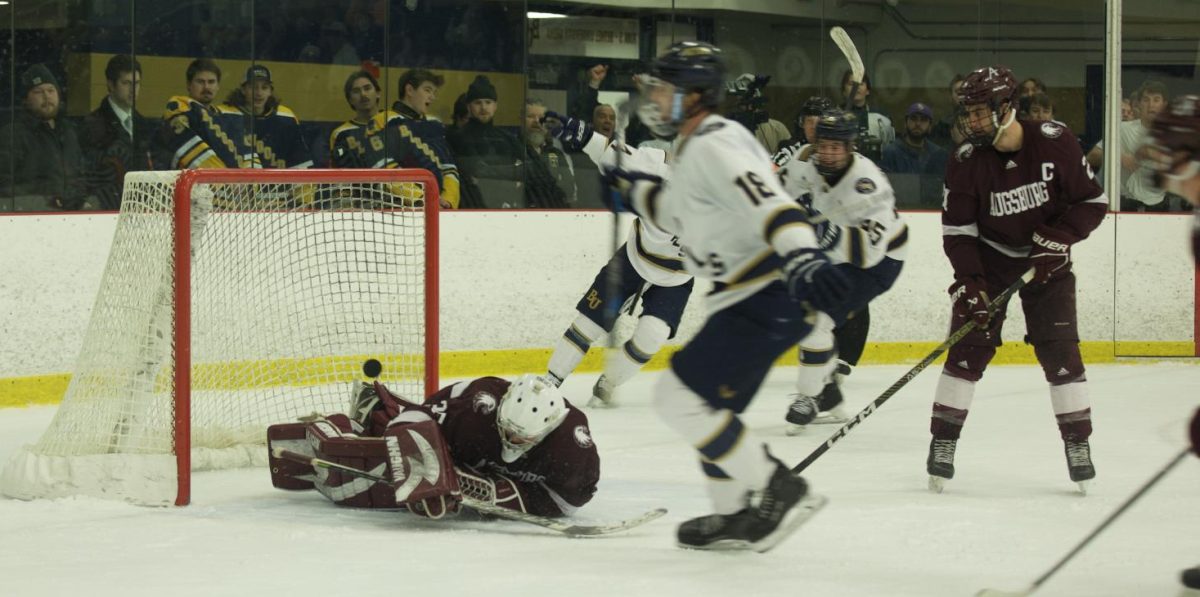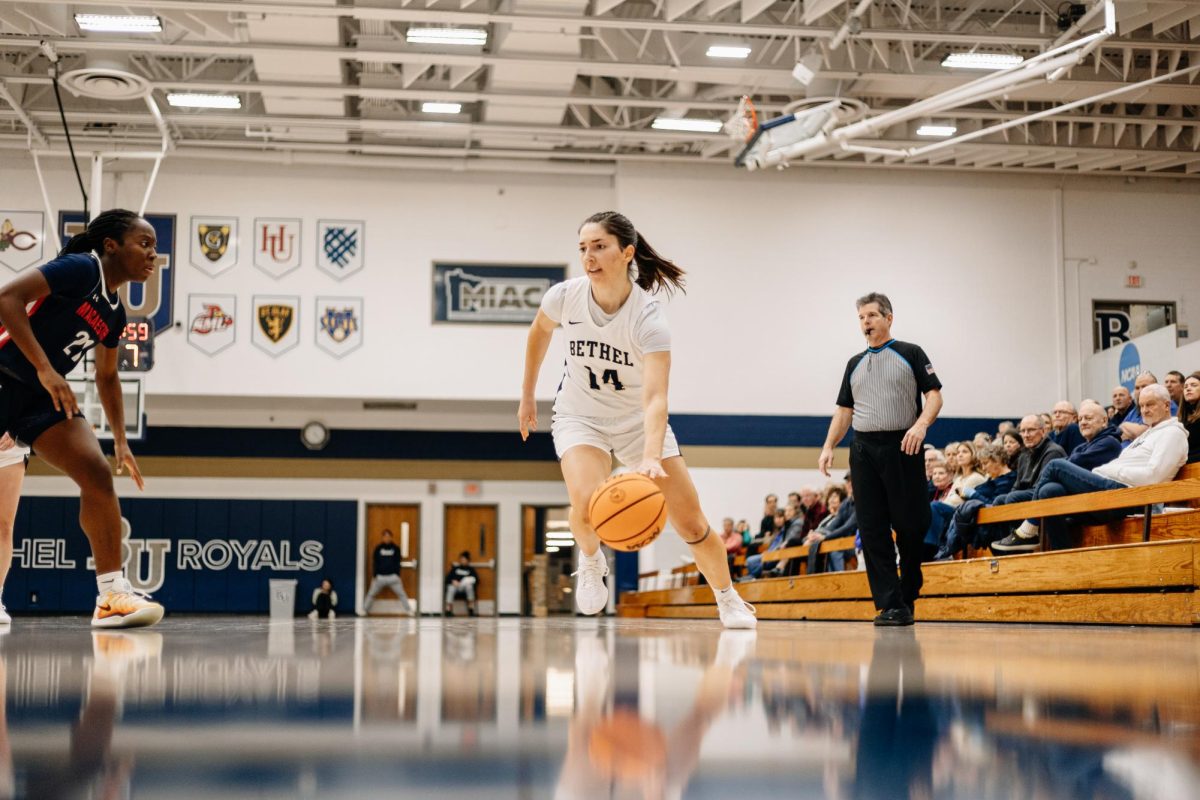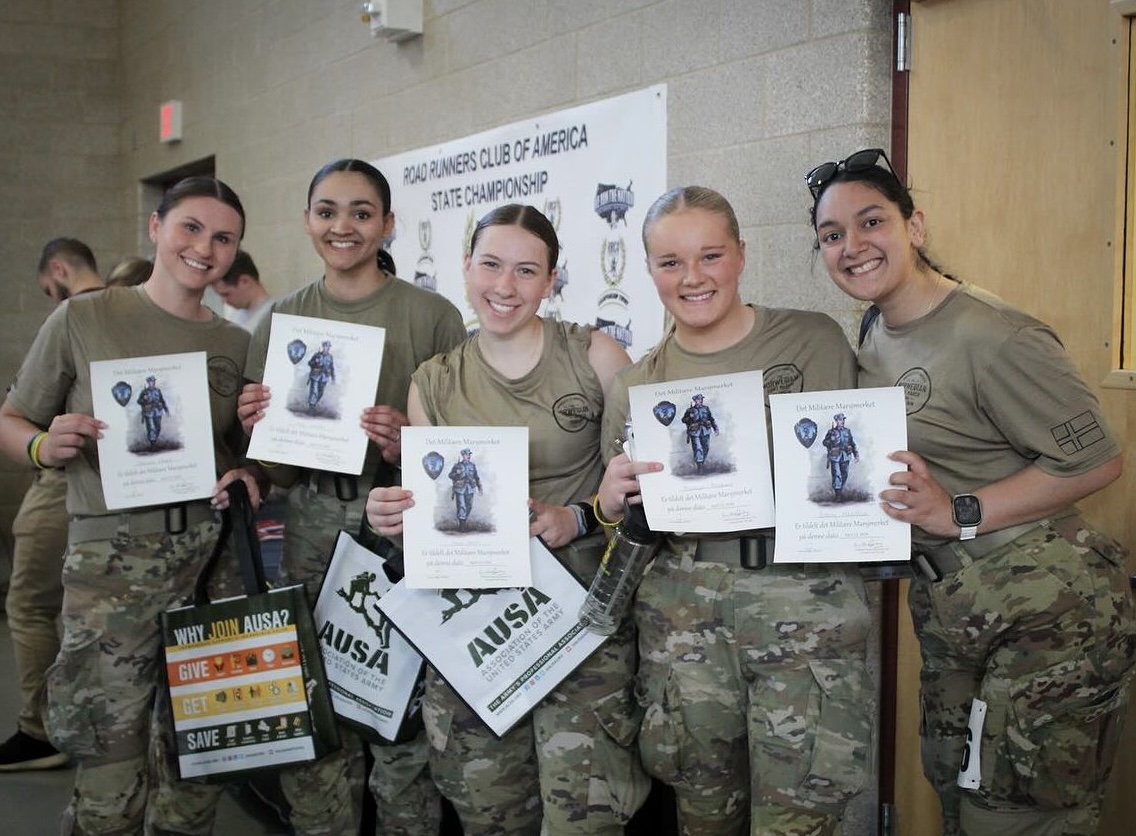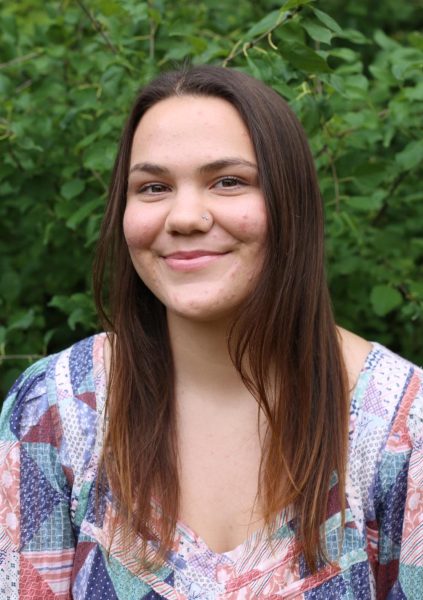Chris Moore slid into the chair in his office and clicked the link in his email. The faces of his colleagues popped up on his computer screen. Andy Bramsen sat in his office just across the hall. The other two guests lived out of state: one in Ohio, the other in Washington D.C. Everytime they jumped on a Zoom call to record an episode together, they talked about the biggest events and topics of the political world. But today felt different.
An hour wasn’t enough time. There was so much to talk about, especially with Election Day only a week away. Moore, an associate professor of political science at Bethel University, scanned the outlined notes for the newest “Election Shock Therapy” episode, a podcast he started back in 2016 to talk politics with other professors. But now tensions were rising, and talking anything politics around campus was becoming more and more taboo.
“We created the podcast with the goal of modeling talking about politics civilly and not so divisively,” Associate Professor of Political Science Andy Bramsen said.
Bramsen emphasized the importance of engaging in political conversations – not just avoiding the topic completely or starting arguments with peers. On a campus that strives to be a university of “whole and holy persons,” students are called to be civil and friendly with each other.
“Part of being a whole person in our democratic society is taking responsibility for how our society is covered,” Moore said, “And you can’t do that unless you’re politically knowledgeable.”
Resources and news outlets online, such as the long-running public affairs television show “Firing Line” or outside sources like the broadcast station BBC, provide useful information and answer questions to help citizens make more informed decisions.
“Seek multiple sources… from different perspectives,” Matthew Kuchem, the Director of Outreach for the Institute for Humane Studies at George Mason University said. “Take candidates’ words seriously because they say what they mean and what really drives them.”
Even the courses offered at Bethel teach students the skills to analyze policies and encourage them to live out their values. It is a preparation for navigating everyday life. And students can’t avoid politics forever.
“It’s essential for students to engage in politics and the election process because these decisions directly shape their futures,” International Relations TA Emma Revoir said. “Policies on education, job opportunities, climate change, healthcare, and social issues all impact their lives now and in the years to come. Getting involved allows students to advocate for what matters to them and influence policies that align with their values and needs.”
The election season is arduous and exhausting as the final stretch approaches, both for the candidates and the citizens who are scrambling to figure out where they stand and how to keep their relationships with friends and family alive. Everyone in the country is waiting around to see what will happen.
“I believe that we can all have civil political conversations if we are willing to see each other as children of God, made in His image,” Revoir said. “Everyone deserves love and respect, and when we begin conversations from that perspective we can engage in potentially difficult discussions.”




















